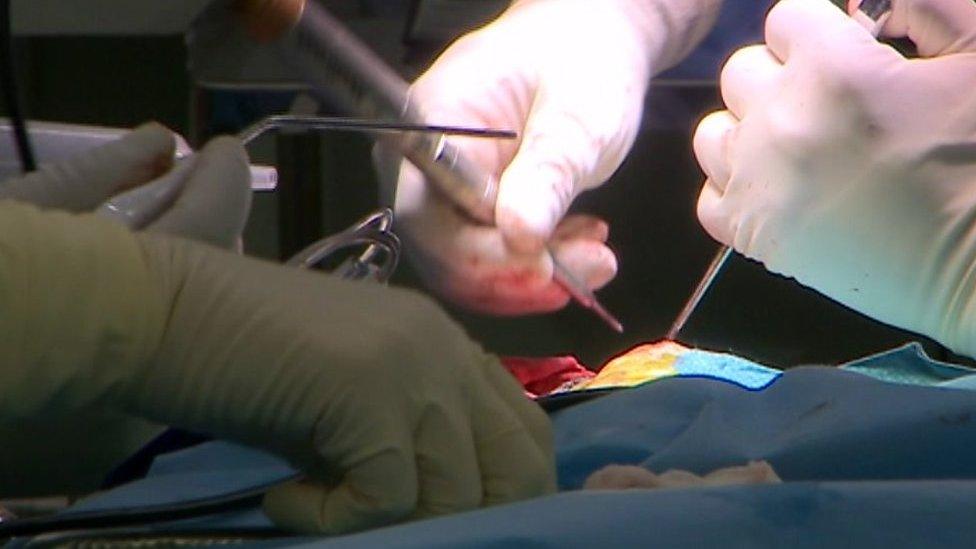Japanese encephalitis: Life 'on hold' for Sophie Williams
- Published
What is it like to live with encephalitis?
The life of a university lecturer who contracted Japanese encephalitis during field work in China has been "on hold" in a home miles away from her partner.
Dr Sophie Williams, 35, from Bangor, was bitten by a mosquito in 2015 while researching illegal trade in orchids.
She collapsed, and was found by her flatmate. Sophie was transferred from a Chinese hospital to Bangkok where she spent weeks in a coma.
One in three people who develop serious symptoms, external do not survive.
Since returning to the UK, Sophie has spent time in various hospitals and now lives in a care home for the elderly in Wrexham.
She is on a ventilator and needs 24-hour care.
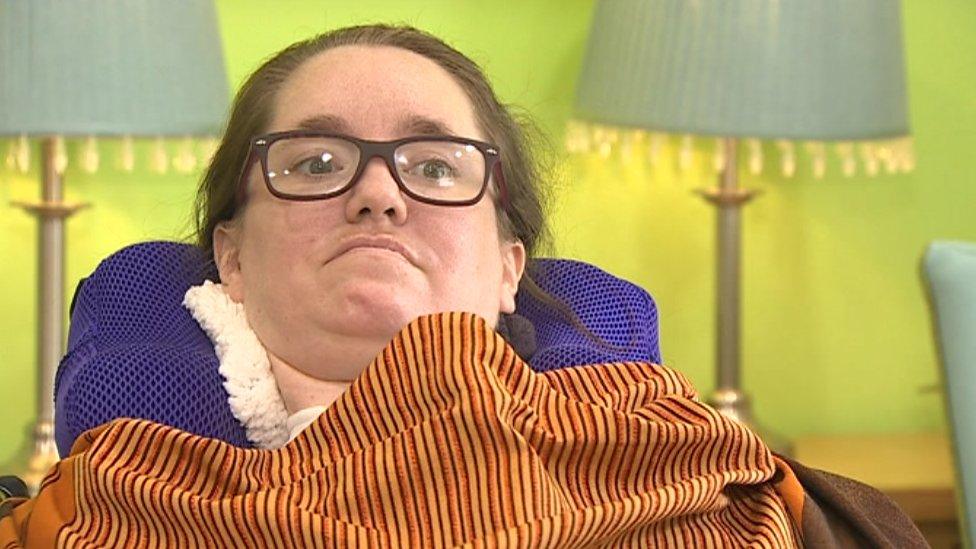
Sophie Williams now lives at a care home in Wrexham
Her partner Dr Robert Annewandter, 40, said until the couple's home in Bangor nearly 70 miles away can be adapted for her, their life will be "on hold".
A music festival is being staged at Treborth Botanic Gardens near Bangor on Saturday to raise money to do exactly that.
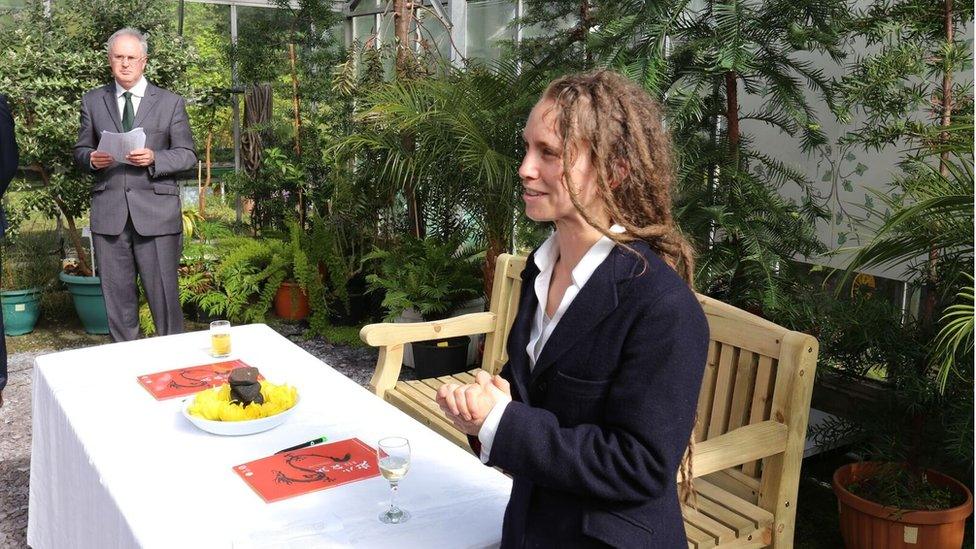
Sophie Williams at Treborth Botanic Gardens before she became ill
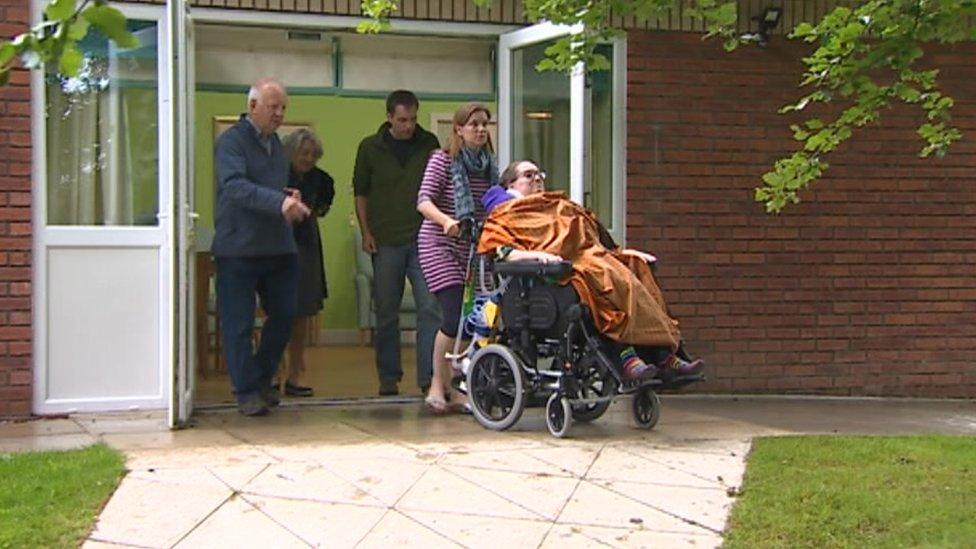
Sophie Williams's partner believes she needs to be around friends and family to improve further
Robert said Sophie's doctors expect her condition to be permanent with no further improvements - but he believes this only to be true as long as she is far away from friends, family and colleagues.
"She needs to be home," he said.
"She is in an old people's care home, and being far away from home, from her community and friends, means she is not seeing many people and her only pleasure is watching TV.
"She's not able to move her arms to stretch, if she has an itch she cannot scratch it, she can't change the television channel or change position."
Sophie, speaking to BBC Wales, said she often feels tired and confuses day and night, is not able to understand whether or not her dreams are real, and that when she speaks, she is "repetitive".
She said if she is able to return home, she can "live a free life".
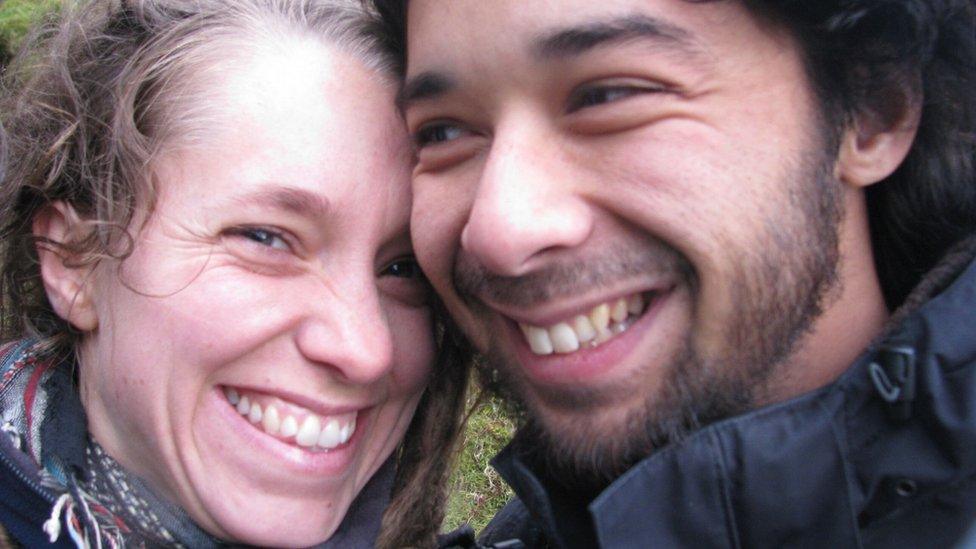
Sophie with her partner Robert Annewandter before she fell ill

Robert said Sophie, whose work has helped safeguard the futures of botanical gardens, was able to continue her academic work while in hospital in Bangor, with students being brought to her ward by professor Julia Jones to discuss her research.
He hopes this will be the case again if she can come home.
"She was a highly-regarded lecturer, she loved to dance, she has a lot of friends," he said.
"On Tuesdays, Julia would bring students or colleagues to give presentations and discuss work, or just to have a gossip."
Enough funds have already been raised to begin work to extend the couple's home and adapt it to meet Sophie's needs - but she will also require one or two carers, and Robert has struggled to find any who feel confident in providing ventilator support.
"If something goes wrong, there are lethal consequences. There is not an abundant amount of carers with the confidence.
"As long as she's not home, neither she nor I can get on with life. It's been four years."
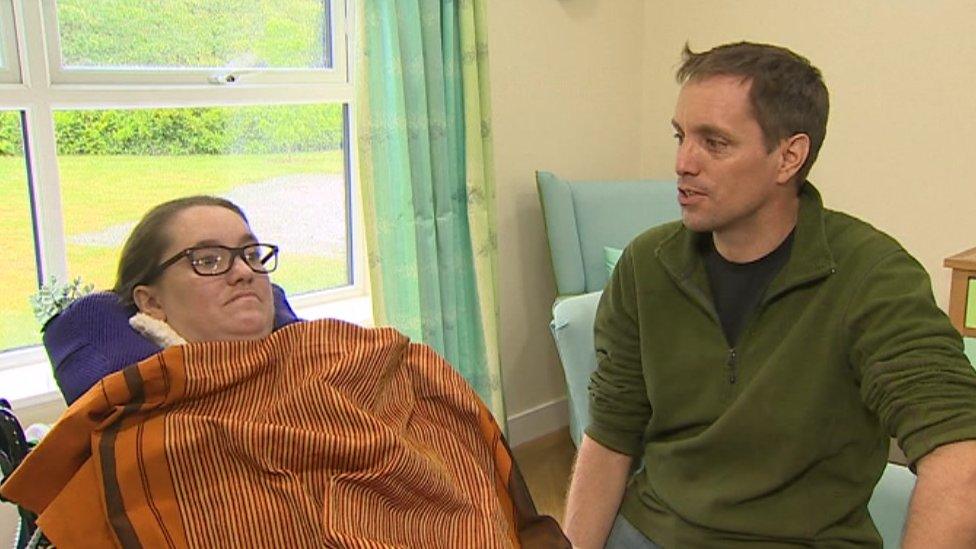
Sophie's brother Sam praised the care she has received in Wales
Her brother Sam Williams said: "Sophie needs full-time care, and the care that's been provided in Wales has been phenomenal and Sophie's partner Robert has been truly amazing with his dedication.
"At different moments Sophie's been able to eat and, through physiotherapy, recover the use of movement on hands and feet as well.
"If we could get Sophie home, Sophie has an amazing community and support network and friends, and that's really important for Sophie's stimulation and wellbeing."
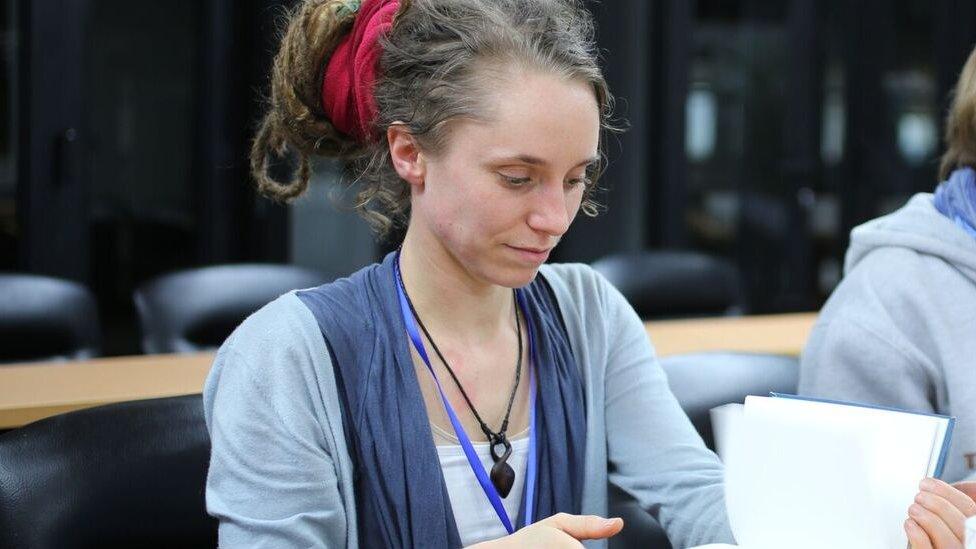
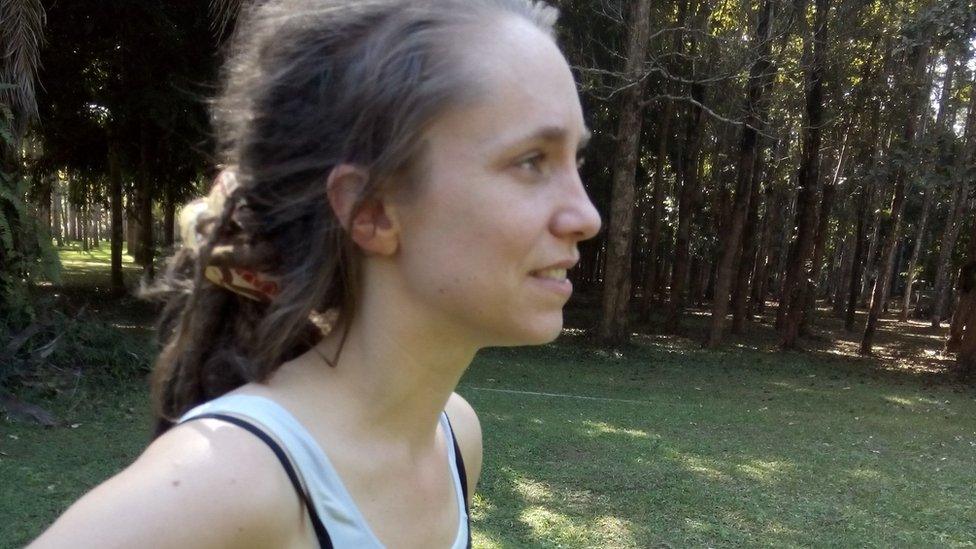
Speaking of Saturday's event, Prof Jones said: "Sophie has always had a talent for bringing people together.
"As a student at Bangor University, she was involved in raising money and campaigning to support the botanic gardens.
"When she fulfilled her dream and became a lecturer at the university, she was deeply involved in the garden every day."
Sophie added: "It's good to have people come together."

What is Japanese encephalitis?
It is a viral brain infection spread through mosquito bites, common in rural areas of southeast Asia.
About one in 250 people who become infected develop more severe symptoms - and up to one in three of those die. There is currently no cure.
In those who survive, symptoms tend to slowly improve. Up to half are left with permanent brain damage.
Symptoms include:
a high temperature
seizures (fits)
a stiff neck
confusion
the inability to speak
uncontrollable shaking of body parts
muscle weakness or paralysis
Source: NHS
- Published12 October 2011
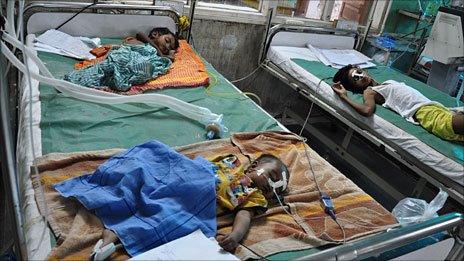
- Published29 February 2016
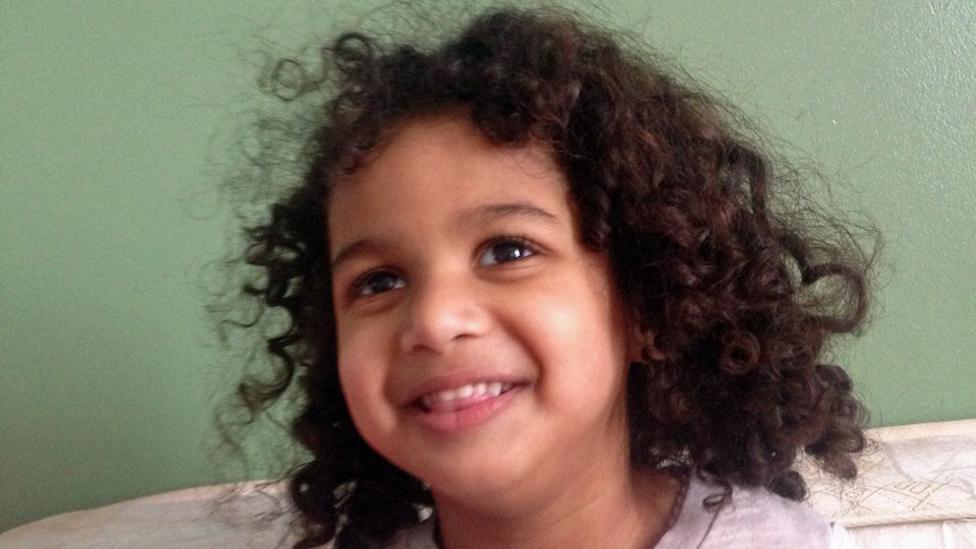
- Published17 January 2019
